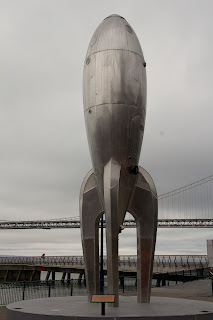The sky is white and low, and the day is dim, like early
morning before sun-up. There is no
breeze to move the leaves. All is heavy and still. I imagine it will rain soon
and dissipate yesterday’s heat. Storm weather.
Yesterday Philip left school in the middle of the day to
drive four hours due west to a tiny town called Bellville. A friend had
recommended him to an engineering firm there, and there’s a possibility of a
summer internship. We messaged him to check the car before he left: oil, tires,
gas. He called us on the road and mentioned rain. A few minutes later he
exclaimed, “That is some rain!” We forgot what that can mean in Texas.
The interview went well as far as we can tell. They said if
he got the job, maybe he could find a sublet in a nearby college town. I try
not to imagine this—my son shopping around for shelter while I’m too far away (Ireland)
to be of any help. At four thirty, Philip
called to tell us he was on his way back to Longview. He should be home by
nine, ten our time. It wasn’t stormy in Bellville.
We didn’t hear the phone ring at ten. Or hear the chirp of
the three messages. When we checked at ten thirty, we read: “Tornado hit. Roads
blocked. A car fell on my tree, but I think it’s fine.” We call and call and call, but there is no
answer. We imagine him sitting in his car, in the dark, covered in tree. Robert
asks me if I’m worried. And believe it or not, I say no. Philip hasn’t given
any indication that he’s in immediate danger. I trust his judgment. “I wonder
if he knows about flash floods and to stay out of dips in the road,” Robert
adds. This is not comforting.
After another half hour, he calls. He’s had to backtrack and
backtrack again to find a detour around the fallen trees. Robert reminds him
about the dips and asks him if his Garmin is helping him along, and he says,
no, the Garmin is useless. Once he takes a detour and finds it blocked, the
unimaginative device that doesn’t understand natural disasters just directs him
back onto the original road he’s just abandoned. He has to keep track of what
roads he has already tried and found blocked so that he doesn’t try them again.
As he’s talking, I’m wondering what his gas gauge is reading since he’s a few
hours off his original ETA. He says that now another tree has fallen on the car,
but it’s small, so he keeps going, and he tells us about the dirt track that he
just took where his car was sliding around in the mud, making him wish he hadn’t
attempted this short cut. I’m wishing the same thing.
We want to keep him on the phone, listen to him talk, gauge
the situation by the tenor of his voice, keep him company in the wet dark. We
wish our wishes could carry him home safe. But this is his own east Texas tornado
to ride, and he needs to save his phone battery, just in case.
We stay up reading, waiting for the phone to ring. It
chirps. He’s home by midnight. We fall asleep, relieved. Someone had said
something earlier that day about flooding and tornado watches in Texas. Little
did we know (horrible phrase), here in North Carolina, it was our watch, too.
It is one of the two great themes of our lives: little do we know.












